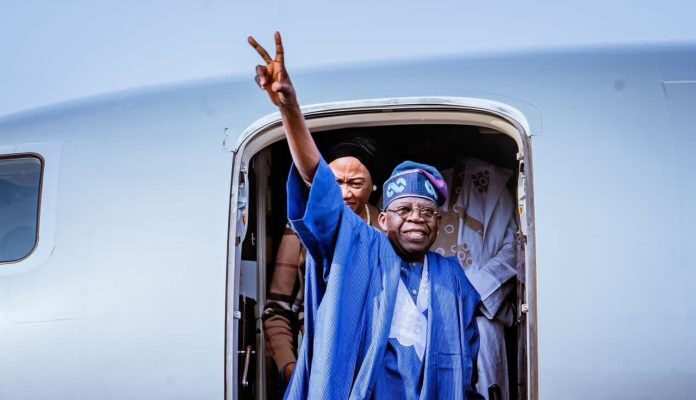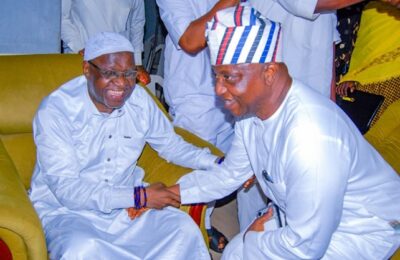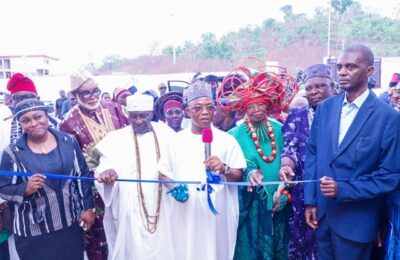By Musa Bakare
Since assuming office in May 2023, President Bola Ahmed Tinubu has orchestrated a historic transformation of Nigeria’s political landscape. Without the backdrop of a national election, several elected politicians including governors, senators, and lawmakers at federal and state levels have defected to the All Progressives Congress (APC), becoming disciples of Asiwaju Bola Ahmed Tinubu.
Most of these figures were previously elected on opposition platforms. Today, they are united behind President Tinubu’s bold vision and reform-driven leadership.
This sweeping realignment is not mere political expediency. it is a direct endorsement of Tinubu’s performance, strategic governance, and unifying leadership style. His administration has implemented impactful economic reforms, made inclusive appointments, and stabilized governance in ways that resonate across party lines.
Irrespective of whatever coalition anyone may embark upon, It is clear that it will be extremely difficult for any of the 36 state Governor in Nigeria today not to campaign for the return of President Bola Ahmed Tinubu in 2027. None of the state Governors today is facing the embarrassment of owing workers salary, infrastructure development is being embarked upon by virtually all the 36 state Governors, courtesy administrative acumen of Asiwaju Tinubu.
In April 2025, Governor Sheriff Oborevwori of Delta State defected from the PDP to the APC, sending shockwaves through the political establishment. He was swiftly joined by Speaker Emomotimi Guwor, 21 members of the Delta State House of Assembly, and six House of Representatives members: Victor Nwokolo, Julius Pondi, Thomas Ereyitomi, Nicholas Mutu, Ukodhiko Jonathan, and Nnamdi Ezechi.
Their unanimous shift reflected a broad embrace of President Tinubu’s leadership at both state and federal levels.
The APC’s 2024 governorship victory in Edo State catalyzed further defections. Speaker Blessing Agbebaku crossed over to the APC, alongside key lawmakers and 17 local government chairmen from the PDP, demonstrating deep-rooted political change from the grassroots upward.
Also in Akwa Ibom state, Senators Ekong Sampson and Aniekan Bassey joined the APC. By June 2025, Governor Umo Eno formalized his switch from PDP to APC, triggering a cascade of defections within the state assembly.
At the federal level, the APC’s numbers in the Senate rose from 59 to 69, due to defections from all regions. In the House of Representatives, 30 lawmakers defected to the APC, reinforcing the party’s national reach and influence.
This wave of support is rooted in the results of Asiwaju Tinubu’s policies not rhetoric. From financial devolution to state empowerment and economic stabilization, his reforms have yielded visible improvements in governance and fiscal health.
While politics often involves self-interest, this level of realignment reflects more than mere survival tactics. It signals a national consensus: President Tinubu’s presidency is delivering, and stakeholders across the federation want to be part of that success, more than than strategy, it is a resounding vote of confidence in the President’s leadership
Unlike any form of coalition or previous defections, often selfishly woven around election cycles, this wave of defections of opposition to APC is unprecedented in its timing, spontaneity, and scope.
As Nigeria edges towards the 2027 general elections, the political message is unmistakable: Nigerians, irrespective of political party, both leaders and citizens,are coalescing around Asiwaju Bola Ahmed Tinubu, a leader who symbolizes focus, unity, and progress.
President Bola Ahmed Tinubu is not just winning political battles going forward to 2027, he is reshaping Nigeria’s democratic culture, uniting the nation under a bold new vision.
– Musa Asiru Bakare is a foundation member of the All Progressives Congress (APC), member Tinubu Support Group (TSG). He writes from Lokoja, Kogi State.




